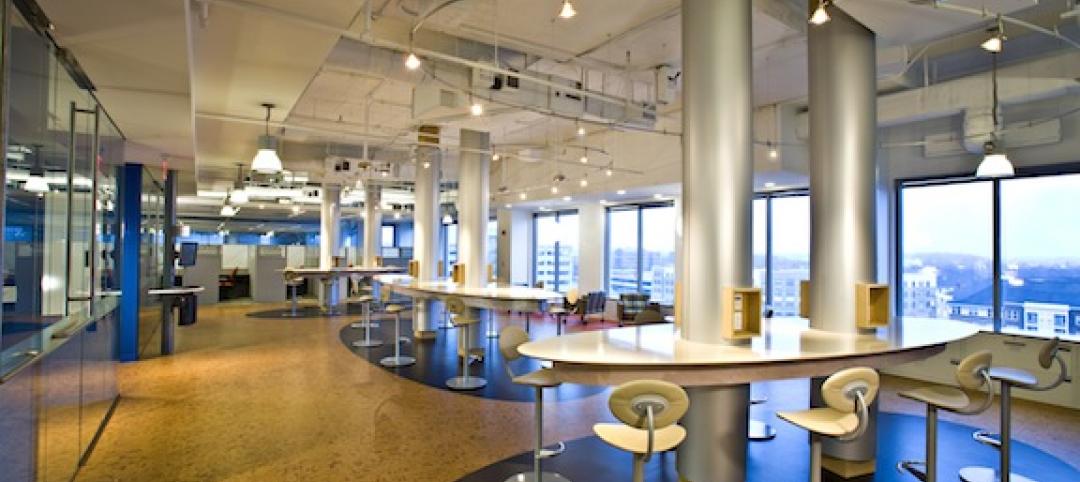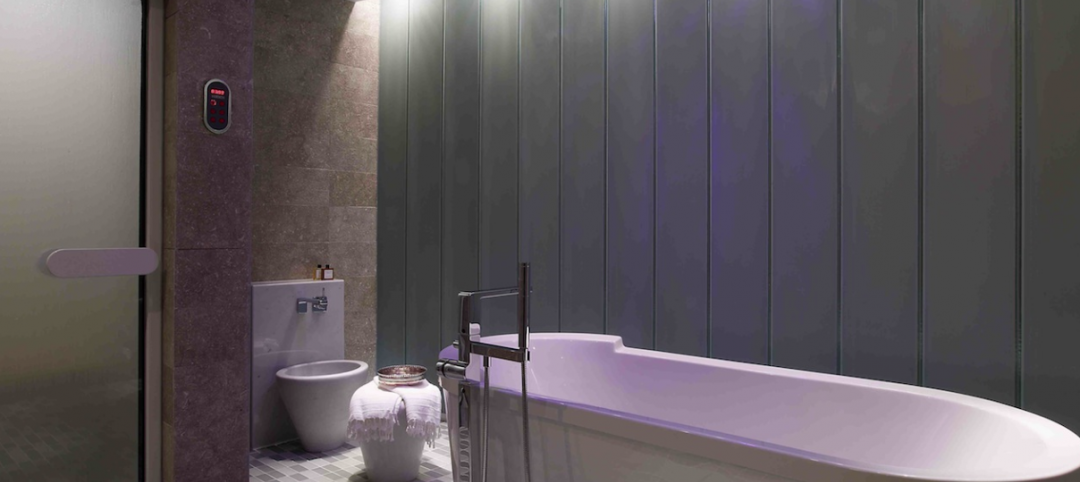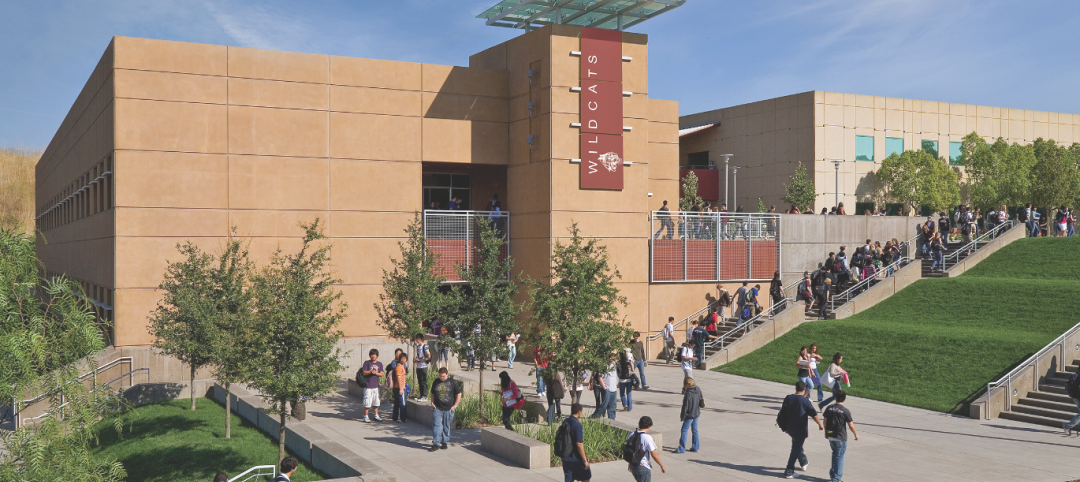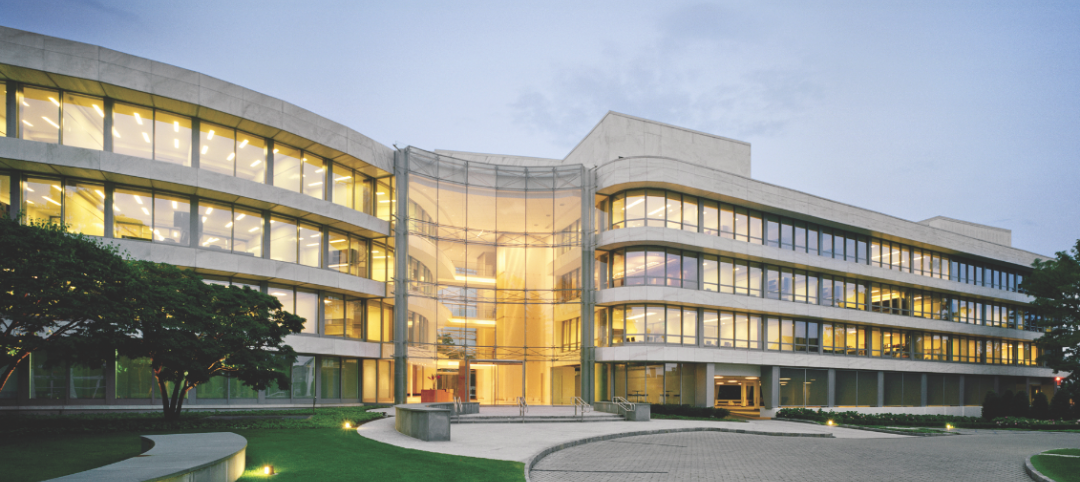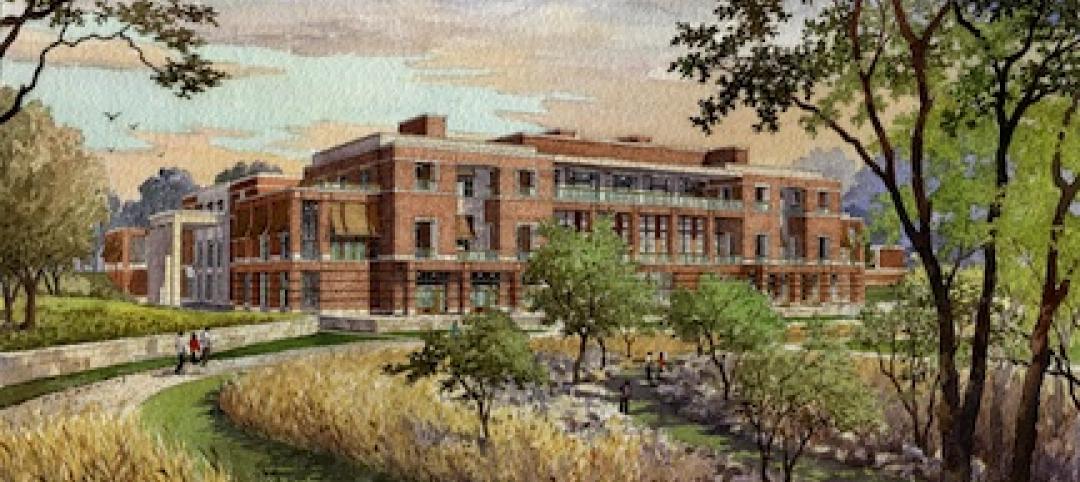BD+C: What are the chief initiatives for BOMA in the coming year?
Boyd R. Zoccola: Our theme for the year is achieving high performance through innovation. One area is recruiting young professionals into real estate management. We’ve got a lot of young people in university real estate programs that want to be owners and entrepreneurs but may not be aware of careers in the day-to-day operations of property management—asset management, interacting with tenants, setting budgets, etc.
Our industry has an aging management group, and we need to reach out to the young people who will be carrying the water in our business through 2025. Our Thought Leaders Symposium at Georgetown University November 10 (www.boma.org/about/bomafoundation) is designed to make them aware of property management as a career.
Another area is benchmarking tools. We’re coming up on the end of the BOMA 7-Point Challenge, to make buildings 30% more efficient than the mid-level (50) building in Energy Star. It’s been a great success, with more than 3,000 buildings and 800 million square feet sharing their data with BOMA. Members like CBRE and USAA are already well beyond the 7-Point Challenge. BOMAStars is a tool to share the data, which will allow us to talk objectively to legislators or mayors about the positive strides we’re making.
BD+C: What national issues will BOMA be pursuing in the coming year?
BRZ: From a tax standpoint, the 15-year timeline for depreciating leasehold improvements expires at the end of the year; left unchanged, it reverts to 39 years. We think 15 years is a more realistic picture of the marketplace, and we want it to be made permanent.
We’re also concerned about an EPA initiative to require the removal of lead-based paint in office buildings. We don’t think there’s been enough study to justify that. The EPA is also considering treating stormwater runoff from office sites. We don’t think buildings are point sources under the Clean Water Act.
BD+C: What are the greatest concerns of BOMA members at this time?
BRZ: The economy is number one, of course. But, based on our research, we now know that work/life balance is number two. We didn’t even hear about that four years ago. All our members are being asked to do more with less, but there’s only so much time in the day, so how much time can they give to BOMA? That’s a concern for us as an organization.
Tenant retention is a big issue for members. It’s much easier to keep a tenant than to replace one. Having vacancies is the easiest way to decrease asset value. Our members are making improvements that tenants can see on a daily basis—common areas, restrooms, corridor finishes—to make sure their buildings are crisp and clean and don’t feel old. They’re making improvements with a two-year payback, but it’s the five- and 10-year paybacks where the overall cost just doesn’t make a business case, at least not without incentive dollars.
BD+C: How is the BOMA 360 program doing?
BRZ: BOMA 360 is about holistic best practices, how well you run your building with the systems that you have—standard operating procedures, emergency preparedness, Energy Star benchmarking, data sharing, etc. It’s just two years old, and we already have 300 certified buildings. Surveys are showing that 360 buildings are getting higher marks in tenant satisfaction than other buildings. When you look at the other designation programs out in the marketplace, we’ve exceeded all but one, LEED.
BD+C: When is the U.S. office market going to turn around?
BRZ: It’s kind of the haves and the have-nots. D.C., New York, San Francisco, Boston, they’re all doing very, very well. There are some other pockets, but for most BOMA members, our recovery is directly tied to jobs, and until we can reduce unemployment, we’re not going to see a turnaround in the office market.
Medical continues to be a strong sector across the country—MOBs, surgical centers, imaging, oncology, outpatient services. Mixed-use properties are becoming more prevalent, and we think they’re going to flourish.
BD+C: What’s your biggest business-related worry?
BRZ: From our company’s perspective, it’s how best to manage the inflation risk that we perceive as coming in the marketplace. We think it’s going to happen.
The other has to do with staff retention. Over the last three years, we asked people to go without raises and employer contributions to 401(k) plans. I believe that many BOMA members, large and small, are trying to manage their staff retention, to make up for the cuts of the last three years.
BD+C: How can BD+C readers—architects, engineers, and contractors—work more effectively with BOMA members as clients?
BRZ: From a personal perspective, I’m buying those services based on quality of service and ability to deliver on time; price is in third place. It’s all about timing, and you might be one of the three or four firms that I throw into an RFP process. I don’t shotgun out an RFP to 20 firms.
Now’s the time to market within your niche. Don’t try to be everything to everyone. We hear from a lot of firms who want to do medical buildings but have no experience, and they wonder why we don’t pick them.
Make sure that you’re marketing to multiple people within a company. If that one person at the top goes, you’re vulnerable. Make sure that if you have a transition in a client organization, you can survive a CEO change.
Finally, it’s the last 2% of every job that’s the most difficult, and that’s the time to finish strong. Don’t give your client any reason to make a change. BD+C
Related Stories
| Dec 7, 2010
Product of the Week: Petersen Aluminum’s column covers used in IBM’S new offices
IBM’s new offices at Dulles Station West in Herndon, Va., utilized Petersen’s PAC-1000 F Flush Series column covers. The columns are within the office’s Mobility Area, which is designed for a mobile workforce looking for quick in-and-out work space. The majority of workspaces in the office are unassigned and intended to be used on a temporary basis.
| Dec 6, 2010
Honeywell survey
Rising energy costs and a tough economic climate have forced the nation’s school districts to defer facility maintenance and delay construction projects, but they have also encouraged districts to pursue green initiatives, according to Honeywell’s second annual “School Energy and Environment Survey.”
| Dec 2, 2010
GKV Architects wins best guest room design award for Park Hyatt Istanbul
Gerner Kronick + Valcarcel, Architects, PC won the prestigious Gold Key Award for Excellence in Hospitality Design for best guest room, Park Hyatt Macka Palas, Istanbul, Turkey. Park Hyatt Maçka Palace marries historic and exotic elements with modern and luxurious, creating a unique space perpetuating Istanbul’s current culture. In addition to the façade restoration, GKV Architects designed 85 guestrooms, five penthouse suites, an ultra-hip rooftop bar, and a first-of-its-kind for Istanbul – a steakhouse, for the luxury hotel.
| Dec 2, 2010
U.S Energy Secretary Chu announces $21 Million to improve energy use in commercial buildings
U.S. Energy Secretary Steven Chu announced that 24 projects are receiving a total of $21 million in technical assistance to dramatically reduce the energy used in their commercial buildings. This initiative will connect commercial building owners and operators with multidisciplinary teams including researchers at DOE's National Laboratories and private sector building experts. The teams will design, construct, measure, and test low-energy building plans, and will help accelerate the deployment of cost-effective energy-saving measures in commercial buildings across the United States.
| Nov 29, 2010
Data Centers: Keeping Energy, Security in Check
Power consumption for data centers doubled from 2000 and 2006, and it is anticipated to double again by 2011, making these mission-critical facilities the nation’s largest commercial user of electric power. Major technology companies, notably Hewlett-Packard, Cisco Systems, and International Business Machines, are investing heavily in new data centers. HP, which acquired technology services provider EDS in 2008, announced in June that it would be closing many of its older data centers and would be building new, more highly optimized centers around the world.
| Nov 29, 2010
New Design Concepts for Elementary and Secondary Schools
Hard hit by the economy, new construction in the K-12 sector has slowed considerably over the past year. Yet innovation has continued, along with renovations and expansions. Today, Building Teams are showing a keener focus on sustainable design, as well as ways to improve indoor environmental quality (IEQ), daylighting, and low-maintenance finishes such as flooring.
| Nov 29, 2010
Renovating for Sustainability
Motivated by the prospect of increased property values, reduced utility bills, and an interest in jumping on the sustainability bandwagon, a noted upturn in green building upgrades is helping designers and real estate developers stay busy while waiting for the economy to recover. In fact, many of the larger property management outfits have set up teams to undertake projects seeking LEED for Existing Buildings: Operations & Maintenance (LEED-EBOM, also referred to as LEED-EB), a certification by the U.S. Green Building Council.
| Nov 23, 2010
The George W. Bush Presidential Center, which will house the former president’s library
The George W. Bush Presidential Center, which will house the former president’s library and museum, plus the Bush Institute, is aiming for LEED Platinum. The 226,565-sf center, located at Southern Methodist University, in Dallas, was designed by architect Robert A.M. Stern and landscape architect Michael Van Valkenburgh.
| Nov 23, 2010
Honeywell's School Energy and Environment Survey: 68% of districts delayed or eliminated improvements because of economy
Results of Honeywell's second annual “School Energy and Environment Survey” reveal that almost 90% of school leaders see a direct link between the quality and performance of school facilities, and student achievement. However, districts face several obstacles when it comes to keeping their buildings up to date and well maintained. For example, 68% of school districts have either delayed or eliminated building improvements in response to the economic downturn.



